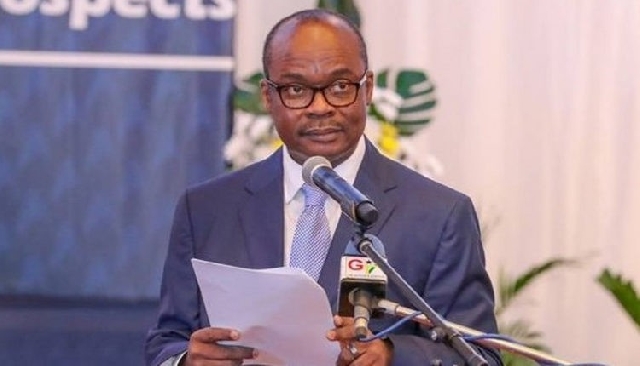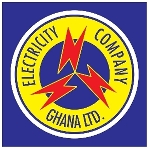Debt restructuring programme hasn't been an easy task - BoG Governor
 Dr Addison said the debt exchange programme, where the stock of Government of Ghana debt was to be halved from 105 per cent of GDP
Dr Addison said the debt exchange programme, where the stock of Government of Ghana debt was to be halved from 105 per cent of GDP
The domestic debt exchange programme has not been an easy road to take, Bank of Ghana Governor Ernest Addison has said.
Speaking at the Chartered Institute of Bankers' Governor's Day, Dr Addison said the 2022 economic crisis that culminated in an IMF bailout programme, had corrective measures that inclueed stringent fiscal and monetary policies to help restore macroeconomic stability and debt sustainability, while laying the foundation for inclusive growth.
He said it emerged from the discussions that ensued that macroeconomic adjustments alone would not be enough to deal with the problem of debt sustainability, as the debt sustainability analysis confirmed that Ghana’s debt would still not be sustainable even after the expected macroeconomic adjustments and, therefore, some form of debt treatment was needed to support the entire programme.
The structure of Ghana’s debt, he noted, was such that both domestic and external debt treatments were required due to their almost equal proportions in the total debt.
Dr Addison said the debt exchange programme, where the stock of Government of Ghana debt was to be halved from 105 per cent of GDP (including contingent liabilities) to 55 per cent of GDP by 2028, was launched, starting off with the Domestic Debt Exchange.
"Implementation of the DDEP was not an easy task, as it was the first time that a country in Africa had to undergo a debt restructuring programme, which not only covered external creditors, but also domestic creditors", Dr Addison mentioned.
Broadly, sovereign debt workouts are painful, for the debtor country, its citizens, its creditors, and official creditors.
It must be executed very carefully for the economy to return to normal economic activity quickly.
"Under circumstances where access to credit markets remains unavailable, and trade finance is hampered, foreign direct investment is withered, and financial instability remains, the longer it will take the economy to recover", he noted.
He said the initial debt restructuring scenarios had to be "tweaked several times" between the initial announcement and the final scenarios.
On the domestic side, households, institutions, pension funds and the banks, "somewhat, saw less punitive treatment than initially designed". Given that the debt threshold remained unchanged, Dr Addison said the Bank of Ghana had to, therefore, step in as the “loss absorber” with a more punitive treatment (50% haircut) than initially designed, leading to a large loss at the Bank of Ghana, driving it into negative equity at the end of 2022.
"This is not to justify the losses, but to indicate that the policy choices made by the Bank during those difficult times were for the greater good of the economy", he explained.
The bank, he said, has "commenced corrective actions to deal with the aftereffects of the losses and remains committed to the highest standards of sound management, transparent accounting, and good governance practices".
Source: classfmonline.com
Trending Business

NPA boss heaps praise on Finance Minister and BoG for stabilising Cedi, fuel prices
11:18
President Mahama sets $10 billion target for non-traditional exports by 2030
03:34
Hand over Saglemi housing project to TDC- Parliamentary Select Committee to gov't
04:51
CEMSE calls for urgent review of Ghana’s upstream petroleum laws to boost investment
14:55
Gov't urged to act fast on the completion Pokuse-Mayera affordable housing project
10:25
DVLA kick starts 24-hour service on Wednesday
03:17
CEMSE urges new TOR MD to take bold steps toward financial recovery
17:41
ECG to install mobile transformer to boost power supply at Tse-Addo
06:24
Ghana to host major horticulture expo in June 2025
03:23
Angel Group CEO engages Free Zones Authority on strategic expansion plans
03:52



